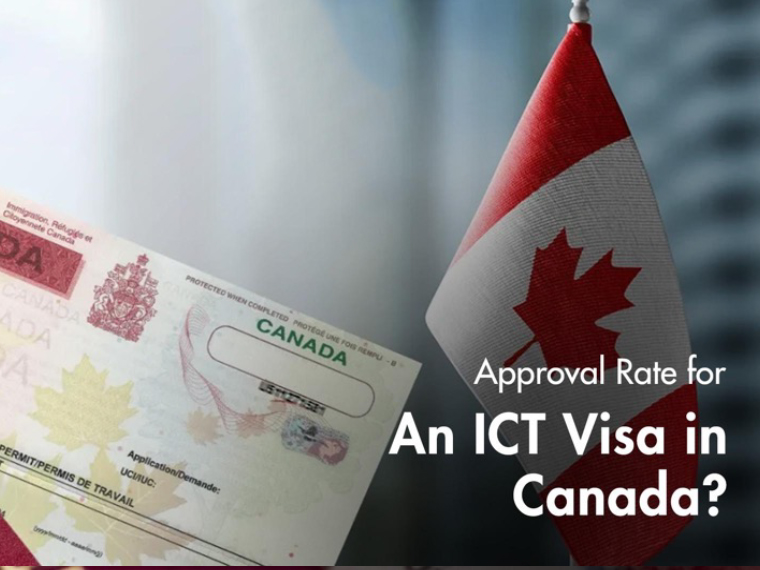
WHAT IS THE INTERNATIONAL MOBILITY PROGRAM?
The International Mobility Program educates workers on their rights while working in Canada. All the rights of a worker in Canada, including those of temporary foreign workers, are guaranteed under the constitution. You have the same rights and workplace protections as Canadians and permanent residents even if you are a temporary foreign worker.
Imagine a scenario in which you need to hire a competent overseas worker but are unable to complete the LMIA process due to time constraints. You have to get a work permit for abroad. You should consider the International Mobility Program if you require skilled labour but don't want to deal with the Canada LMIA processing headaches. If you wish to hire a foreign worker without going through the hazards, formalities, and processes of the LMIA process, you should consider recruiting through the International Mobility Program.
Work permits issued under the International Mobility Program are totally flexible. This indicates that the employee doesn't have to go through any additional formalities or processes in order to obtain new employment in Canada. Employees have the right to resign from their positions if their rights are violated. From the employer's perspective, this allows for a more lenient compliance regime. You can also look for the best immigration consultants to help you in this process and knowledge.
As an employee, you should be aware of the foreign workers' rights. The following comprise the worker’s rights:
To notify you of your legal rights Send you a copy of your employment contract that has been signed before you apply for a work permit. Pay you for your work in accordance with the terms of your employment contract (including overtime labour, if it is specified therein). Give you access to a workplace free from harassment and retaliation Assist you in obtaining health care services if you are harmed or ill at work by following the employment and recruitment rules of the province or territory where you work. Force you to do unsafe work or work that is not in your employment agreement You must still report to work even if you are unwell or wounded. If it's not specified in your job contract, they compel you to work overtime. Cannot punish you for reporting mistreatment or unsafe work, or for cooperating with an inspection by the government Cannot take your passport or work permit away from you deport you from Canada or change your immigration status Cannot make you pay back recruitment fees they may have paid to hire you.
WHY DO CANADIAN BUSINESSES SEEK TO ENGAGE QUALIFIED OVERSEAS WORKERS?
Since there is a severe labour shortage in Canada, it is tough for companies to choose their employees. Additionally, there is an urge to make up for the labour shortage in Canada to keep at par with the other parts of the world. Employers are continually competing with other businesses that fill positions rapidly.
HOW YOUR CONTRACT OF EMPLOYMENT FUNCTIONS?
Your company is required to provide you with a copy of your employment contract before you apply for a work visa. It must be written in either English or French, depending on where you're from. This Agreement shall be executed by You and Your Employer. The employment contract must make reference to the same job title, compensation, and working circumstances as in your job offer.
HOW DO OTHER CANADIAN PROGRAMMES OPERATE?
Other employment opportunities in Canada include the Temporary Foreign Worker Program, which assists Canadian firms in filling vacancies with foreign workers when there are not enough qualified Canadians available. To be qualified for the program, Canadian employers must obtain permission and offer acceptable documentation of this unavailability. Before submitting an application for the LMIA, employers in Canada must complete a minimum of three recruitment actions, such as posting a job in the Canadian job bank for a minimum of four weeks over a period of three months, according to the Employment and Social Development Canada (ESDC).
THERE ARE NO FORMAL HIRING REQUIREMENTS FOR THE INTERNATIONAL MOBILITY PROGRAM?
The International Mobility Program is focused on advancing Canada's cultural, social, and economic objectives, therefore it emphasises the advantages of employing a qualified and skilled worker. This is the reason why any LMIA requirements do not apply to employees who have been accepted into the International Mobility Program. This implies that Canadian firms don't need to go through the required four-week recruitment and advertising process in order to hire a qualified overseas worker.
HEALTHCARE SERVICES ARE AVAILABLE AT YOUR DISPOSAL
You may access healthcare without permission from your employer. If you become sick or hurt while working, get medical help as soon as you can and inform your boss. Your employer is required to provide you with access to a healthcare provider (such as a doctor, nurse, or chemist), for instance by providing you with the following:
Time off work to seek medical attention; A phone to call emergency services (such as an ambulance); Information on how to obtain health care; and Assistance in getting to the health care provider.
Your company is not required to cover you to reach a hospital, clinic, physician, or other medical facility. Without involving your company, you can speak privately with a healthcare professional.
Your employer must help to locate a doctor, hospital, clinic, or other medical facility. You can have a private conversation with a healthcare practitioner without involving your business.
ABOUT SWITCHING EMPLOYERS
You have the right to change jobs. You might need to apply for a new work permit to start working for a different employer, though, as your existing work visa might only enable you to do so. It's possible that your new employer will need to use the Employer Portal to make a job offer or request a Labour Market Impact Assessment.
You should look into the International Mobility Program if you need skilled personnel but can't find them in Canada. The International Mobility Program gives you a simple, disadvantage-free way to recruit the talent you need for your team. With the International Mobility Program, you are not required to pay any additional fees or fulfil any conditions. You don't even need to worry about any compliance difficulties because the International Mobility Program grants open work permits.
HOW TO RECEIVE SUPPORT IF YOU ARE IN ANY TROUBLE?
You should file a complaint if you believe that your employer has violated the terms of the International Mobility Program or has harmed you or someone you know.
This is a private service. Your call is kept a secret from your employer by Service Canada. Among more than 200 languages, you can communicate with a Service Canada representative. You are welcome to voice your concerns in an anonymous mail. Every call is taken seriously, and it might be looked into. Using an online form, you may also report abuse to Service Canada.
HOW TO DEAL WITH ABUSE?
Call Service Canada's confidential tip line at 1-866-602-9448 to report an abusive situation. Call 9-1-1 or your neighbourhood police if you require immediate assistance.
Applying for an open work permit for vulnerable workers may be able to help you escape an abusive workplace if you believe you are being abused or are at risk of being harmed.
HOW CAN VAZIR GROUP HELP?
Vazir Group helps you invest in second residency and citizenship all over the world, enabling people and families to become Global Citizens. Governments, consultants, legal and financial experts, and investors may achieve their objectives effectively, efficiently, and ethically with the help of Vazir Group.
At Vazir Group, you would receive guidance on how to get detailed advice about the International Mobility Program. Contact us to know more.





